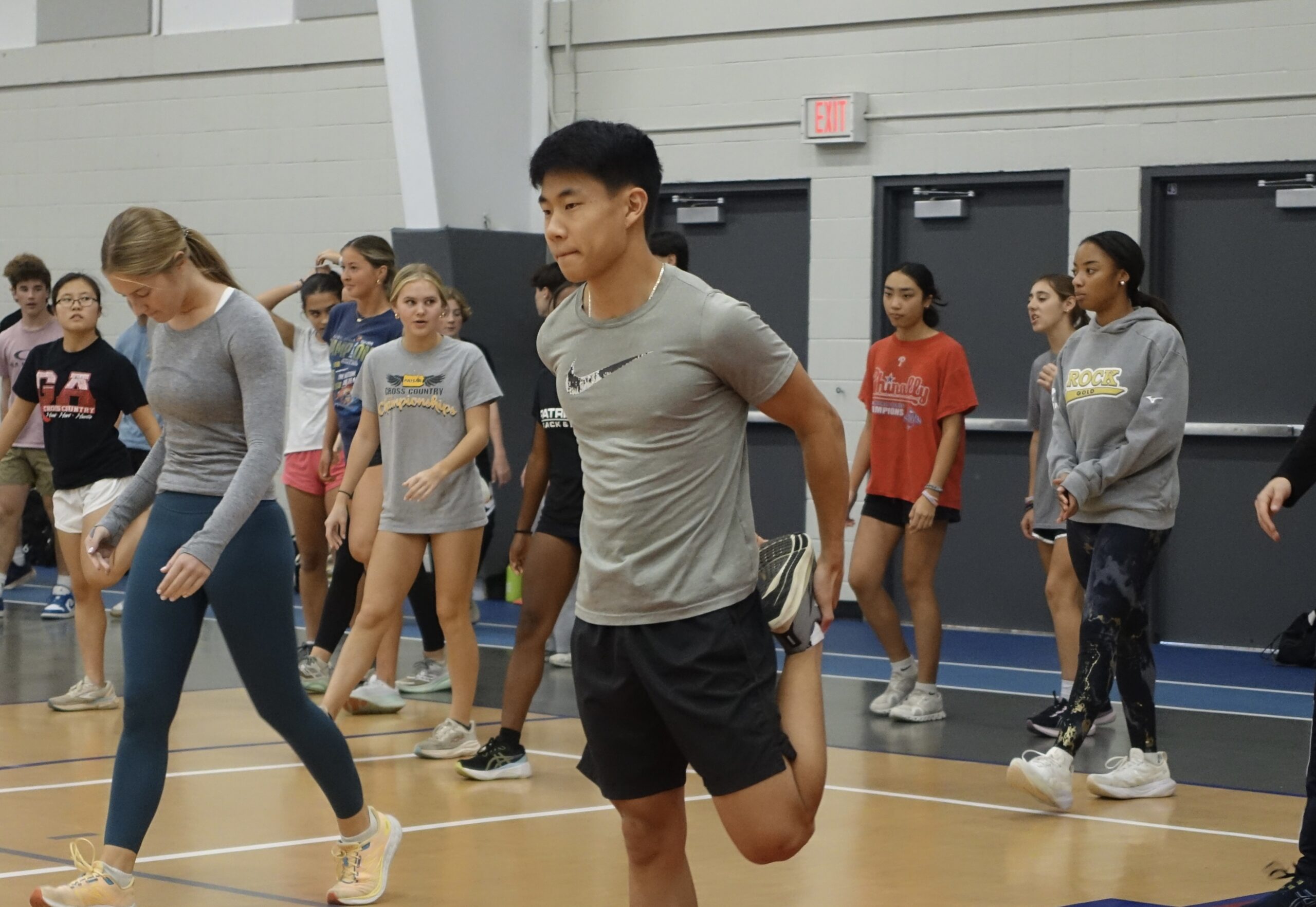As the mornings transition from crisp to cold and the days get scarily short, many aspiring athletes are gearing up for the season of winter track. For some, it’s a way to hang out with friends. For others, it’s to get in shape for the spring season.
It is a common sentiment around the GA campus that the onset of winter causes some lack of motivation. The colder days, shorter time for the sun to shine, and approaching winter break are some of the factors behind the issue.
“Yeah, sometimes during the winter I get kind of lazy because it’s so cold and there’s not much sunlight,” Alex Wang ‘26 said.
However, winter track acts as a way to fill the time and also stop the impending lazy feeling.
“It helps fill up my free time,” winter track athlete Elli Wang ‘26 said. “Winter track is like what Mr. Rheam once said – it’s active transport. We’re moving against all odds, uphill in the cold, burning energy the whole way.”
Indeed, the act of exercising in the winter helps stave off feelings of laziness and also allows students to become more athletic.
“I want to get faster,” Xavier Tubio ‘27 said. “Also, I feel like I’m wasting my time if I don’t do a sport—being a three-sport athlete is my goal.”
The presence of other like-minded athletes also helps to make the experience more enjoyable. Many athletes do winter track simply to work with their friends toward a common goal: to run faster, jump higher, and throw farther.
“I want to do winter track because I like to spend time with my friends and it also helps me to get in shape for spring track where I will do high jump,” track athlete Ava Dalton ‘26 said. “I also really like going to the meets to cheer on other athletes and promote GA spirit.”
While winter track is a fun way to improve one’s fitness, many also take it very seriously to improve and achieve their goals for competitive success.
“My main goal this year is to place in the top 5 of the state championship,” Evan Badami ‘26 said. “Running alongside my teammates and enjoying the process of improving together allows me to improve a lot quicker.”
Winter track also offers most, if not all, of the events that spring track does. Thus, it acts as a good metric for preparing for the spring season. Many athletes have personal benchmarks specific to the winter.
“For this winter track season, I want to break 4:28 in the mile and 1:58 in the 800,” Tyler Benson ‘27 said. “It’s going to be hard, but I think it’s possible.”
Of course, organizing such a large body of student-athletes in one area with a variety of events poses some challenges, but this is where winter track head coach Coach Steve Moll steps in.
“It’s a really cool puzzle to put together,” Coach Moll said. “You have athletes of a wide variety of talents, abilities and obviously different events. Winter track is a sport for everybody because there is an event for everybody.”
Although winter track is oftentimes seen as an activity to improve upon fitness for other sports, it does have its own team bonds.
“Our positive team culture stems from consistency. Consistency of showing up and consistency of work,” Coach Moll said.
Ultimately, winter track has something for everyone. It helps make the winter feel less lazy, lets athletes become more fit for different seasons, and has its own team culture for somebody who is looking for a team.

